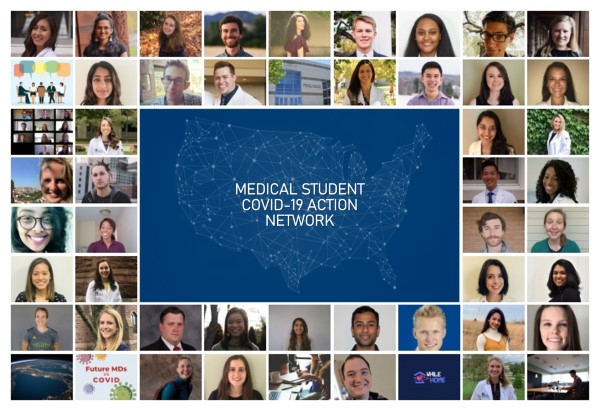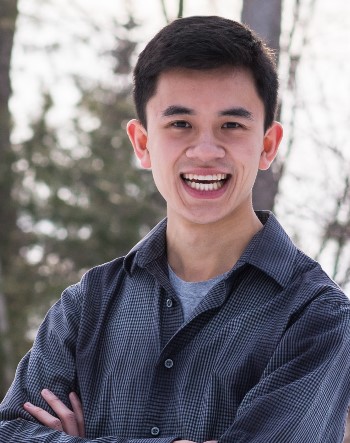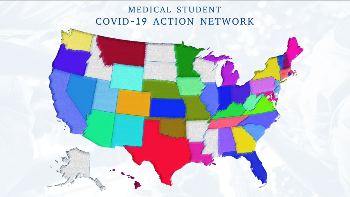Wednesday, July 15, 2020
Category: News
Vinh Le ’19 creates Medical Student COVID-19 Action Network (MSCAN) with team of fellow students
By Anna Seip

On March 13, the University of Vermont’s Larner College of Medicine moved to online learning in light of the COVID-19 pandemic.
One of its students, Vinh Le ’19 says he felt moved to act even if he wasn’t yet a doctor.
“I wanted to elevate the incredible work being done by health professions students, and after chatting with fellow student Cyrus Thomas-Walker and software developer Jam Risser, one potential solution emerged: develop an online database of COVID-19 service activities organized by medical schools nationwide.”
With some quick grassroots organizing, the trio quickly gathered a team of 22 people and created the Medical Student COVID-19 Action Network (MSCAN).
“We reached out to every medical school in the United States. A week later, the website went live with activities, such as providing childcare for healthcare workers on the front lines, gathering PPE for hospitals and clinics, assisting with screening calls and tutoring children struggling with online school,” said Le, who majored in biomedical biology at Messiah.
Today, MSCAN offers more than 550 unique service opportunities from 115+ medical schools in 42 states (plus Washington, D.C., and Puerto Rico). The core team has 57 members and has partnered with Harvard Medical School, the LCOMCares Service Corps and other like-minded institutions. MSCAN is also producing videos to combat misinformation and explain the science behind the pandemic in a concise and understandable way.
“We’ve heard back from grateful students across the country who can now start serving locally. Our hearts have been warmed to witness healthcare workers benefiting from the project. And day by day, we’re privileged to witness the formation of valuable relationships and the exchange of creative ideas,” said Le. “Indeed, for all of us, this project has been a powerful and uplifting example of what it means to serve.”
The MSCAN project now falls under the purview of the Public Health Coalition, which was created to assemble health professions students for future health crises. In times when crises are absent, Le says he would like to use this platform to connect student projects and share relevant medical information with the public.

He credits his Messiah experience with training him to be a servant leader. “If there's one thing my education at Messiah taught me, it's that my Christian faith is compatible – even intertwined – with my training as a scientist. My faith calls me to serve others, and the specific nature of that calling has become so clear amidst the pandemic. The MSCAN endeavor is not about me, nor is it about the members of my team. Rather, it's about how we can use our collective voices to bring hope in dark times,” he said.
MSCAN is partnering with other organizations and trying to help people beyond the United States find more service opportunities. “After the pandemic is over,” he said. “the work will go on.”
For more information about COVID-19-related medical student volunteer initiatives around the U.S., visit MSCAN at http://mscanvolunteer.org
Source: Vinh.Le@med.uvm.edu